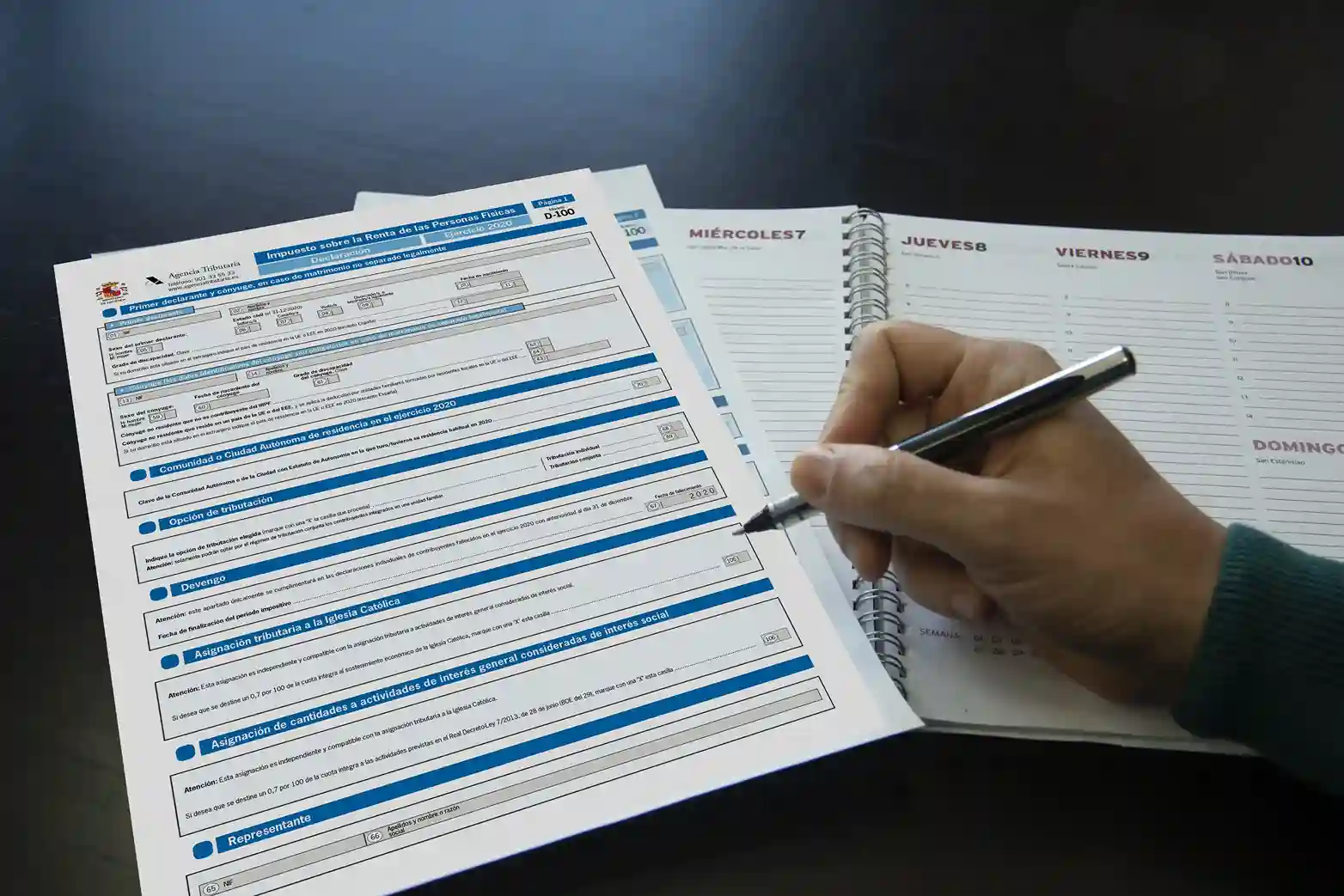Understanding your tax obligations is essential when living, working, or investing in Spain. The country’s tax system is multi-layered and implies responsibilities determined by your residency status, income sources, and even region of residence. Failing to comply can lead to penalties, while proactive planning can optimize your liabilities and ensure peace of mind.
For expats, it’s important to understand the specifics of Spain taxes for non-residents since their status dictates liability. If you spend 183+ days/year in Spain, you’re subject to feeing on worldwide income (salaries, pensions, investments, rental income, etc.). Non-residents are taxed only on Spanish-sourced income (e.g., rental income, property sales). Moreover, Spain has 17 autonomous communities that set their own rates for key options (e.g., income, inheritance, or wealth). For example, Madrid offers wealth exemptions and Catalonia has higher inheritance rates for non-relatives.
The country has state and regional governments, both of which affect the tax system. Central government is responsible for setting the framework for income, VAT, and corporate fees. Autonomous communities adjust income/wealth rates, offer deductions, and set inheritance/gift rules. Municipalities control property tax in Spain for foreigners (IBI) and local fees.
Real estate ownership and investments affect taxation and impose a property tax in Spain for non-residents. Property owners face annual IBI, potential capital gains on sales, and wealth fees (if applicable). For investors, dividends, interest, and capital gains are taxable. Spain fees worldwide investment income for residents. Spain has agreements with over 90 countries to avoid double taxation.

The Spanish Tax System
The Spanish system is administered by the Agencia Tributaria (Tax Agency), the national body overseeing fee collection and compliance. The system operates across three tiers — national, regional (autonomous communities), and local (municipal) — each managing distinct fees. Understanding this structure is vital for residents and non-residents alike, as obligations vary significantly based on location and residency status. The key feature of the Spanish system is a three-tier structure:
- National:
- Income (IRPF) has progressive rates (19%–47%) for residents. Non-residents pay 24% (EU/EEA) or 19% (non-EU) on Spanish income.
- VAT (IVA) has a standard rate of 21%, with reduced rates (10% for hospitality, 4% for essentials like food and books).
- Corporate is set for enterprises, imposing 25% for large companies, with incentives for SMEs.
- Capital gains sets 19%–26% on profits from asset sales.
- Regional:
- Wealth fee ranges from 0.2%–3.5%, depending on the autonomous community.
- Inheritance and gift fees vary drastically by region (e.g., Andalusia exempts direct heirs; Basque Country has lower rates).
- Partial control over income fee implies that regions set their own brackets, deductions, and supplements (e.g., childcare, home renovations).
- Local:
- Spain property tax for non-residents (IBI) is an annual municipal tax (0.4%–1.3% of a property’s cadastral value).
- Vehicle tax (IVTM) is paid to the local council, based on vehicle type and emissions.
The Spanish tax year runs from January 1 to December 31. Deadlines are set for residents and non-residents. Citizens should file an income tax (Declaración de la Renta) between April and June. Non-residents submit form 210 by December 31 for property income or January 20 for other Spanish-sourced income.
Regional Variations: Why Location Matters
Spain has 17 autonomous communities that have significant power to adjust tax policies:
- Wealth. Madrid abolished it for residents in 2023, while Valencia applies rates up to 3.5%.
- Inheritance. In Catalonia, non-relatives may pay up to 34%, whereas Andalusia exempts spouses and direct descendants.
- Income deductions. Basque Country offers deductions for large families; the Canary Islands incentivize investments in local businesses.
The Spanish layered tax system demands careful navigation, especially post-Brexit. Regional rules can save or cost you a lot of money, and residency status shapes your liabilities.
Residency and Tax Liability

Understanding your tax residency status is fundamental to complying with Spain’s system. It determines what you’re taxed on, how much you pay, and which deductions you can claim. Thus, expats should treat a non-resident tax in Spain thoroughly.
You’re considered a tax resident if you meet either of these criteria:
- 183-day rule: Spend 183+ days in Spain within a calendar year (days need not be consecutive).
- Center of Vital Interests: Your primary economic or personal ties (e.g., family, business, assets) are in Spain, even if you spend fewer than 183 days there.
For example, a UK citizen working remotely from Barcelona for 6 months, with their spouse and children living there permanently, may be deemed a tax resident.
To understand the answer to the question of what is non-resident tax in Spain, you should perfectly realize who is a non-resident. For expats living in Spain for less than 183 days per year, obligations differ significantly from those of residents. You’re a non-resident if:
- you spend <183 days in Spain within a calendar year;
- your “center of vital interests” (family, primary income, assets) is outside Spain.
Tax Liability: Residents vs. Non-Residents
Tax residents are taxed on worldwide income (salaries, pensions, global investments, and income). They must file an annual IRPF (income tax return). Citizens are eligible for tax allowances/deductions (e.g., mortgage interest, childcare, pension contributions). They are also subject to wealth tax on global assets (depending on regional rules).
As for non-residents, they are taxed only on Spanish-sourced income (e.g., rental income, property sales, business profits in Spain). They file Form 210 for Spanish income. Non-residents do not have access to most deductions (flat rates apply). The wealth tax applies only to Spanish assets (e.g., real estate).
Key Steps for Compliance
To comply with the system and be eligible to pay the Spain tax for foreigners, expats should go through the following steps:
- Obtain an NIE (Tax ID Number). It is required for all financial activities (e.g., buying property in Spain, opening a bank account). Abroad, foreigners can submit Form EX-15 at a Spanish consulate. In Spain, expats should visit a Comisaría de Policía (police station) with a pack of documents (passport and its copy and proof of need (e.g., property deed, rental contract). The processing time is 2–6 weeks.
- Declare obligations. Here, two types of Forms exist. Fill in Form 210 (Modelo 210) and file it annually for rental income (by December 31) and property sales (within 4 months of sale). Form 30 (Modelo 30) is used to register as a non-resident with the Agencia Tributaria to declare your status.
- Report foreign assets (if applicable). Non-residents with Spanish assets (e.g., property) must declare them, but Modelo 720 (foreign asset reporting) applies only to residents.
Types of Taxes
Basically, the Spanish system comprises the following options:
- Income (IRPF). Residents get progressive rates, while flat rates are offered for non-residents.
- Property (IBI). Annual local non-resident tax in Spain on property based on cadastral value, along with other property-related taxes like basura and plus valia.
- Capital Gains. It’s charged on profits from property sales or investments, with specific rates depending on the amount.
- Wealth. It applies to assets over a certain threshold, with regional differences in rates.
- Corporate. It’s a flat rate for most companies, with special rates for new businesses.
- VAT (IVA). Here, three levels, including general, reduced, and super-reduced rates, are distinguished.
- Inheritance & Gift. It varies by region and relationship to the deceased, with recent reforms equalizing rates for residents and non-residents.
- Road. It’s an annual fee on vehicle ownership, varying by region.
Tax Compliance and Enforcement
Spain’s Agencia Tributaria rigorously enforces compliance with penalties escalating for delays, inaccuracies, or deliberate evasion. Post-Brexit and the rise of remote work, authorities have intensified scrutiny of digital nomads, freelancers, and non-residents to curb underreported income. Understanding the consequences of non-compliance is critical to avoiding fines, legal action, or reputational damage.
Penalties for Non-Compliance
The inability to pay non-resident tax in Spain leads to the following penalties:
- Late filing or payment. Minor delays (≤3 months) entail a 5% fine on unpaid tax + 1% monthly interest. Severe delays (>3 months) entail up to 20% fine + interest. For example, missing the June 30 income fee deadline for residents triggers immediate penalties.
- Inaccurate declarations. Negligent errors (e.g., accidental underreporting) entail 15%–50% of unpaid tax. Intentional fraud (e.g., hiding income) results in 50%–150% of unpaid tax + potential criminal charges.
- Foreign asset reporting (Modelo 720). Failure to declare overseas assets (bank accounts, property, investments) exceeding €50,000 leads to fines of €5,000–€10,000 per item (max €600,000). Penalties apply even if no tax is owed.
- Serious fraud. Evasion exceeding €120,000 can lead to 1–5 years imprisonment (under Spain’s Penal Code).
Targeted Enforcement: Digital Nomads & Remote Workers
Spain’s 2023 Digital Nomad Visa has prompted tighter audits of:
- undeclared freelance/remote income (e.g., clients outside Spain);
- misuse of the “Beckham Law” (special regime for foreign workers);
- failure to register as self-employed (autónomo) while working remotely.
For example, a UK remote worker in Valencia underreporting freelance income risks fines of 50%–150% of unpaid tax + back penalties.
How the Agencia Tributaria Detects Non-Compliance?
The tax agency uses the following methods for revealing evasion:
- Data cross-checks. Bank transfers, property registries, and international data (e.g., CRS, FATCA) are monitored and checked.
- AI tools. Modern technologies are attracted to increase the efficiency and accuracy of checks. The agency enhances the process of flagging discrepancies in declared income vs. lifestyle (e.g., luxury purchases, rental properties).
- Whistleblowers. Tips from disgruntled employees, landlords, or business partners are obtained.
Practical Tips to Avoid Penalties
To pay the tax on property in Spain for non-residents, expats should keep in mind the following tips:
- Use a gestor. It’s a tax advisor who ensures filings meet regional rules and deadlines.
- Leverage amnesty programs. Voluntary disclosure of undeclared assets may reduce fines (case-specific).
- Digital tools. Software like TaxDown or Agencia Tributaria’s online portal simplifies filings.
The Spanish tax system is an important aspect of relocation. It rewards proactive planning but punishes oversight. Investing in tailored advice saves money, time, and stress, letting you focus on enjoying your stay in Spain. Whether you’re a retiree, entrepreneur, or remote worker, a trusted advisor is your best ally against unexpected fines or audits.




